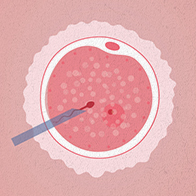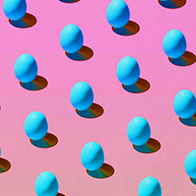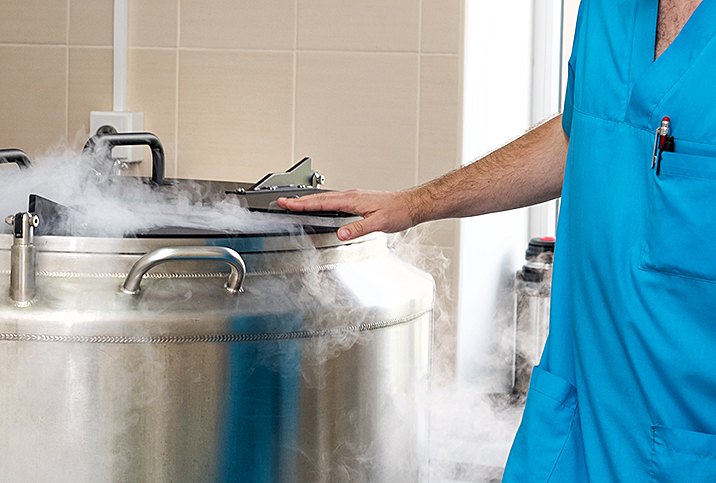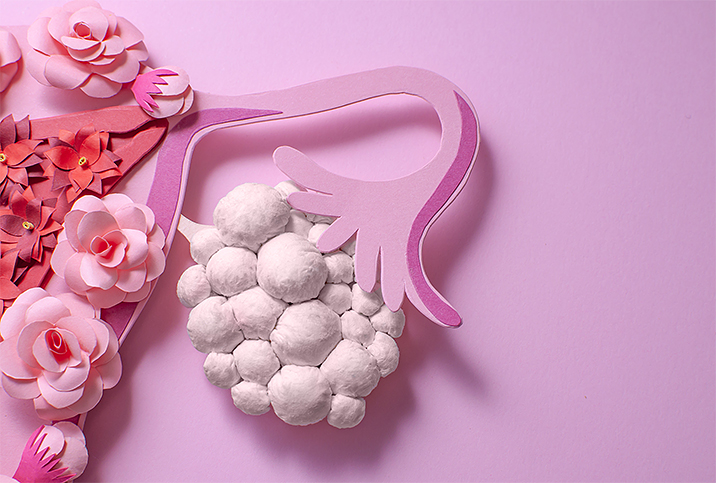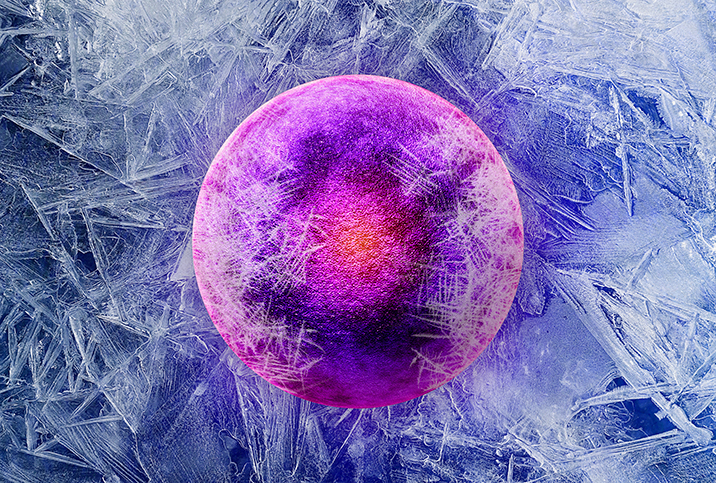What's It Like to Donate Your Eggs?
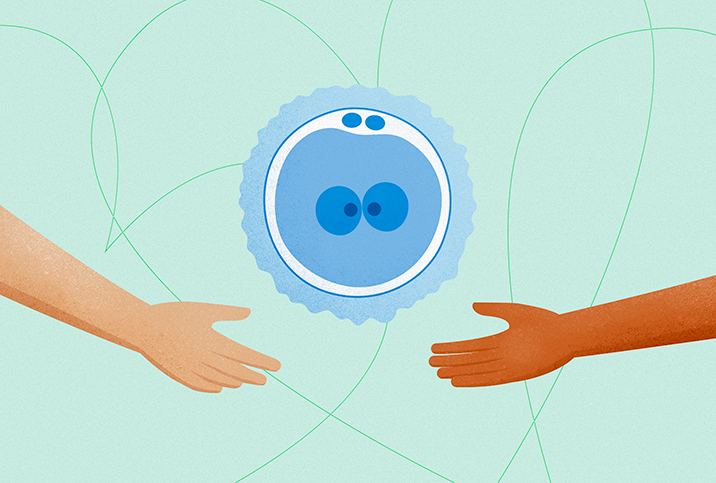
Editor's note: Some of the sources for this article requested their full names and locations not be used.
For seven years after her first miscarriage, Angela Roeber tried "everything under the sun" to conceive a second child. She consulted multiple doctors, tried two fertility clinics, homeopathy, acupuncture and chiropractic adjustments, and underwent four unsuccessful intrauterine inseminations.
"I was eventually told I had bad eggs and would never be able to conceive another child of my own," recalled Roeber, a communications director in Omaha, Nebraska. "I was told after seven years of trying everything, an egg donor or adoption were our only two options."
Roeber chose the former, becoming one of the thousands of parents in the United States to conceive with the help of an egg donor.
"We have been blessed with two healthy, beautiful boys," she said. "Our family of five is complete."
Egg donation facts and figures
Although the practice of egg donation began in the early 1980s, its popularity—and efficacy—has increased significantly over time.
Between 2005 and 2014, the number of in vitro fertilization (IVF) cycles using donated eggs or embryos jumped almost 27 percent. More than 53 percent of pregnancies using fresh donor eggs and 41 percent using frozen donor eggs resulted in live births, according to the 2014 Assisted Reproductive Technology National Summary Report from the Centers for Disease Control and Prevention (CDC).
Most donors are paid for their contribution, on average $5,000 to $10,000 per successful retrieval. But it isn't all about the money for donors.
"Usually, they equate it to giving a pint of blood at the Red Cross," said Jane Frederick, M.D., a reproductive endocrinologist based in Orange County, California. "They're there in an altruistic way to help someone who doesn't have their own eggs who wants to have a baby."
Although egg donors do not bear the lifetime responsibility of parenthood, the donation is still a significant commitment. If you are considering becoming an egg donor, it is important to understand the process and risks in full.
The initial stages of donating your eggs
Prospective egg donors must meet a litany of criteria, the first of which is age. According to the American Society of Reproductive Medicine(ASRM), the ideal age range is 21 to 34, as women's fertility quickly declines around 35. Applicants must also be fertile and healthy nonsmokers, as verified by a battery of tests.
The Food and Drug Administration (FDA) mandates all candidates are screened for HIV, hepatitis, syphilis, chlamydia and gonorrhea. However, most donation facilitators go far beyond the legal minimum and perform more extensive evaluations, including a drug test and genetic screening. Some even perform personality tests.
Donors must also undergo intensive professional psychological exams to verify their mental and emotional well-being, followed by consultations to confirm their suitability and understanding of the procedure.
"[The recipient is] not going to be somebody who's going to call them up every year and send them pictures of the child," Frederick said. "They have to feel comfortable from a psychological and emotional standpoint to be able to say, 'Yes, I'm donating my egg to another couple.'"
There is also some risk of a psychological impact later in life, said Joel Batzofin, M.D., co-founder and medical director at Dreams Fertility in Palm Springs, California. Although egg donation is not thought to have any impact on a donor's fertility, it may affect them psychologically later in life if they struggle to conceive a child of their own.
In addition to discussing the risks involved, most facilitators inquire about topics such as the applicant's motivation for donating, education level, profession, family, hobbies and life satisfaction. If a physician feels the applicant is solely "in it for the money," they can reject them, Batzofin said.
"The initial process takes a few months, which I didn't expect. I had to fill out an initial questionnaire to determine eligibility and then a more extensive one of family medical and personal lifestyle history. The second is extremely in-depth," said an egg donor with New Hope Fertility in New York City who asked to remain anonymous. "Then I had to pass initial bloodwork and testing for things like ovarian reserve, STDs, and genetic testing. The last step before I could even start a donor cycle was a psychological evaluation."
Once approved, the donor must provide their legal consent to the procedure and agree to the terms, which can vary depending on the recipient and the agency.
The egg donation procedure
Egg donation isn't like sperm donation. It involves many weeks of medication, including several days of fertility drug injections; multiple blood tests, ultrasounds and doctor appointments, and invasive surgery. It can be physically and mentally taxing.
"After I was cleared, I was able to start a donor round, which was a few weeks of birth control, two weeks of injections and medication—they teach you how to do the medication and sent daily dosage updates by email—about seven to eight monitoring visits to check my hormone levels and follicle growth, and then the retrieval," the New Hope Fertility donor said.
The process of preparing the donor eggs is essentially the same as an IVF cycle, where medications are used to stimulate the ovaries to produce 10 to 15 eggs instead of one, Frederick and Batzofin explained.
"Using a combination of birth control pills, gonadotropins and either GnRH agonists or antagonists, the donor will be carefully monitored through the cycle with blood tests and ultrasounds," Batzofin said. "When the follicles are sufficiently large, she will be scheduled for a transvaginal, ultrasound-guided egg retrieval procedure. This outpatient procedure is typically done under conscious sedation anesthesia and takes approximately 30 minutes to complete."
Most donors go home within an hour, rest for the day and resume their normal activities the next day, Frederick said. "It's a pretty benign procedure," she said.
Afterward, donors might briefly experience abdominal cramping and discomfort, Batzofin said. They might also have a slightly heavier-than-normal period about two weeks after the retrieval.
The risks of egg donation
As with any medical procedure, or pregnancy for that matter, egg donation carries some degree of risk. However, most donors do not experience any adverse fertility or health effects, Frederick and Batzofin said.
While many people are concerned about egg donation's effects on fertility, Frederick and Batzofin both said the procedure generally has no impact.
"Every month, you have about 50 eggs that are recruited, and one of them will ovulate and 49 will die out. Even when you're on a birth control pill, you still lose eggs every month until you go through menopause and there are no more eggs," Frederick explained. "When I'm giving these medications to the donor, I'm just recruiting more than one egg for that month to ovulate. I'm not taking future eggs or affecting her future fertility by doing an egg harvest this one month. It's not making the donor infertile. It's just allowing more than one egg to ovulate."
There is some risk of an allergic reaction to the medication used during the process. However, Frederick said the egg retrieval surgery carries less than a 1 percent chance of complications related to anesthesia, infection or internal bleeding.
'Most donors do not experience any adverse fertility or health effects.'
While many people are concerned about egg donation's effects on fertility, Frederick and Batzofin both said the procedure generally has no impact.
The more significant threat is ovarian hyperstimulation syndrome (OHSS), in which the ovaries produce 40 to 50 eggs instead of 10 to 15, causing fluid to accumulate in the abdominal cavity. OHSS occurs in approximately 5 percent of patients; the use of Lupron, a preventive medication, keeps the risk low.
"Mild forms of OHSS typically resolve spontaneously, but more severe forms may require additional interventions with intravenous fluid administration and removal of fluid from the abdomen," Batzofin said. "Fortunately, severe OHSS happens very rarely with egg donors."
When severe OHSS does occur, in about 1 percent to 2 percent of cases, it can jeopardize the patient's fertility and even their life.
Most of the donation process's other side effects, such as mood swings and bloating, are benign albeit unpleasant. An anonymous donor who asked to go by "Rovy Wade" described the experience as "PMS on steroids."
"At the end of the process, you pretty much look and feel like a tick about to pop," said Wade, who is slated to discuss her experience in season four of the "Stork'd" podcast. "Also, you might pee and poop yourself at the end because the hormones cause relaxation of different muscles; TMI, but nobody warned me and it was very embarrassing."
Is egg donation really anonymous?
Most egg donations are anonymous. The recipient sees the donor's characteristics: height, weight, ethnic background, eye color, hair color and sometimes a photo, Frederick said. They don't see the donor's name or other identifying information, and donors and recipients typically don't communicate.
"My donor rounds have all been anonymous," the New Hope Fertility donor said. "I did have one couple write me a very lovely note before my retrieval thanking me, though, and that was actually very nice to see. Kind of brought the entire cycle full circle."
However, thanks to the internet, anonymity can no longer be guaranteed, Batzofin and Frederick warned.
"We do caution that in the era of 23andMe [DNA testing], access to social media and people checking their ancestry, it may come that the child of an egg donation cycle may be able to find his or her egg donor 20 years from now," Frederick said.
Wade's experience was unusual. She and her husband connected with the recipients through an agency and met with them twice in person before both parties agreed to proceed. She donated to the family three times and has remained close with them for over 20 years. Neither of the family's girls born from Wade's eggs knows she is their genetic contributor, though they are aware they were conceived through IVF.
"Their mom has encouraged contact since they were little, although I definitely stayed away for the first two to three years after they were first born," Wade said. "I wanted them to have privacy and I also assumed they would change their mind regarding contact. However, that didn't happen, and I am their godmother."
'In the era of 23andMe, access to social media and people checking their ancestry, it may come that the child may be able to find their egg donor 20 years from now.'
Wade said it was the recipients' decision to ask her to be a godmother, and she worries about what might happen when the girls find out about the egg donation. Nonetheless, she is grateful for having had the opportunity to help the recipients fulfill their dream and to be part of the girls' lives.
"I am so happy my son has 'godsisters' who love him and I love being their godmother," she said.
Multiple people and factors are involved in conceiving, gestating, birthing and rearing children. Genetics is just one facet of the 1,000-piece puzzle that is a fully formed human. For donors, the distinction is imperative.
"It is really important to me that the child grows up knowing that the people who raised them are their parents, not the person who just aided in providing DNA," the New Hope Fertility donor said. "My major hope is the child grows up happy and healthy and well-loved!"
Wade said she feels like family but not like the girls' mother at all.
"I want to be clear I do not feel like their mother at all. Their mom is their real biological mom. She is a superhero. She wanted her babies so badly. I feel like an older sister or cousin to them—family," she said. "Their parents are amazing, loving, doting, incredible parents. I regret nothing. I'm glad I made the decision I did. It was the right choice at the time. I could not have provided the life they have. I can't provide that kind of life for my own son. We struggle. But I can look on from a distance and be happy that they have so many opportunities and resources that I would never have been able to provide, and they are so loved. It's a happy ending, be it controversial."







